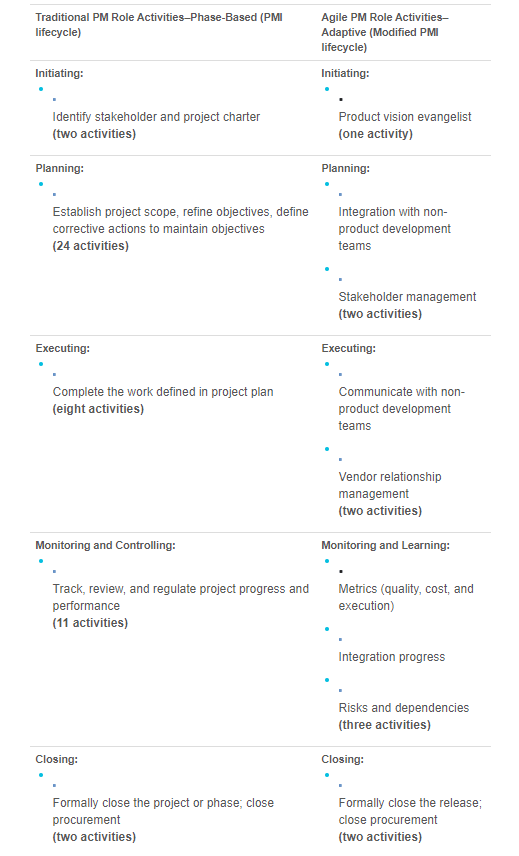According to a 2018 study Agile Project Delivery Confidence, agile projects are 28% more successful than traditional projects. Additionally, a survey showed that of the organizations asked, 71% of respondents reported using agile methodology sometimes, often, or always. Agile is quickly becoming the new norm. Let’s take a look at how this growing popularity affects the roles of project managers.
Traditionally, the project manager, or PM, is responsible for monitoring and maintaining a project’s budget, defining the overall scope, and ensuring adherence to the outlined timeline. They are responsible for overseeing each task to move the project towards completion. However, in an Agile environment, the project manager focuses on agility, adaptability, and team collaboration.
For example, in the waterfall model, the project manager is responsible for 24 different activities that entail setting expectations about what can be delivered, when it can be delivered, and for how much. During the project planning stage, project managers help to define the project scope, plan, and schedule. In contrast, Agile project managers focus more on collaborating with their team and divide responsibilities amongst the team members.
According to the Project Management Institute, project manager role activities shift depending on the environment. Below is a chart from PMI that compares traditional framework role activities and agile role activities:

What happens to these responsibilities?
In an Agile framework, the responsibilities are typically divided into three categories: Product Owner, Scrum Master, and Team Member. The Product Owner sets project goals, defines project scope, adapts to project requirement changes, and sets priorities for project features. The Scrum Master provides guidance for the team, removes any roadblocks, and prioritizes project tasks. Team Members are responsible for team tasks and the daily management of these tasks in addition to quality control and progress reporting. This dynamic allows the team to successfully work in iterations or sprints, which are two to four week cycles when segments of a product are tested.






